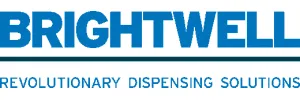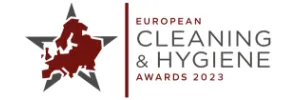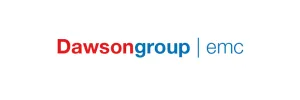Our Blog
Our treasure trove of resources, tips and tricks

Posted on 21 May 2014 by Ceris Burns
Spreading the word to minimise waste
How do we ‘sell’ recycling to a cynical public? Changing hearts and minds is something that local authorities need to do in order to achieve their targets – and effective, relevant communications can really make a difference. Generation Awake, the European Commission’s campaign, has just begun a new phase focusing on the environmental, economic, social and personal consequences of using resources unsustainably. Do the methods and messages being used on a pan-European scale translate at a local level? Ceris Burns, managing director of Ceris Burns International, specialist communications agency for the recycling and waste management industry, investigates…
What kind of recycler are you? Perhaps you’re a passionate advocate, tirelessly finding new ways to stop wasting resources; or maybe you’re neutral – recycling when you remember, but not particularly devoted to the cause. You might even be a recycling refusenik – sceptical of how schemes are managed, and doubtful that it can have a positive effect on the wider community.
Whatever your viewpoint, avoiding exposure to the continuous debates around recycling and waste management is almost impossible. Our 24/7 print and digital media ensure that the subject is never far from the top of the agenda, and it has infiltrated other areas of our lives too. School projects inspire the next generation, and involve the parents and carers that look after them; while organisations and businesses wishing to improve their CSR ratings would be foolish to ignore the benefits of improving their recycling facilities for staff and customers.
A global concern
Whether it’s the debate on global warming, and its impact on the future of the planet; or the location of a new wind farm in a local area famed for its scenery and wildlife – ‘green’ issues are a constant talking point. But how do we make the connection between individual actions and the positive effect this could have on the wider issues – i.e. get more people to use resources wisely and recycle wherever possible?
The European Commission launched its Generation Awake campaign in October 2011, using a light-hearted look and feel to communicate a serious message. According to the Commission, in 2010 total waste production in the EU amounted to 2,520 million tonnes, an average of five tonnes per inhabitant, per year. It goes on to say: ‘By reducing, reusing and recycling waste we can all contribute to a vibrant economy and a healthy environment. This saves environmental and economic resources, helping push Europe towards a more circular economy, where we get the greatest value out of resources and products by repairing, re-using, re-manufacturing and recycling them’.
The campaign centres around that unifying method of communication for us all – a fully interactive website – where cartoon characters show the environmental impact of everyday purchasing decisions in all 24 official EU languages. Since the campaign began the website has been visited over 750,000 times, the videos have been viewed by over 4.5 million people, and the Facebook page has attracted around 100,000 fans.
Think global act local
Governments across the world acknowledge the need for greater action on environmental issues, and this is translated and delivered on a community scale by local authorities. With a duty of care to protect and serve their residents and local environments, and increasing legislation, regulation and targets to abide by and achieve, local authorities need to use all the tools they can to enlist the support of their residents in making this happen.
The importance of good communications was emphasised at this year’s London Conference, organised by EMG Media, which took place in February. In a packed programme, the mid-morning session focussed on the subject of community engagement, with some thought-provoking presentations.
Joanna Dixon, Community Recycling Officer for Croydon Council, outlined the particular challenges she faced when communicating service change in her borough. Croydon is London’s largest borough by headcount – 363,000 population over 148,000 properties, and is the second largest geographically. Affluent suburbs tend to be concentrated in the south, while more deprived, densely populated areas make up the north; and over 70 languages are spoken, with 44.9% of the population of BME origin.
To suit this diverse mix, a wide range of communication methods were used: face-to-face interaction at road shows; leaflets; advertising; schools engagement, community events, branded livery for council vehicles and a comprehensive social media campaign including a dedicated website, Facebook and Twitter.
As the campaign progressed, two distinct categories of resident were identified: those that were highly engaged with current services; and those that had a low level of engagement, or were not recycling at all. This led Joannna Dixon to recommend that local authorities consider segmenting audiences based upon the behaviours they want to change; and tailoring the messaging, and communication methods to suit local needs. This approach helped Croydon to achieve a recycling rate of 44% and to win a number of industry awards.
Kristina Jason Binns, Waste Initiatives and Prevention Officer, from the London Borough of Lewisham emphasised the value of focus groups in her presentation at the London Conference. The views of a number of groups – including residents, recycling and refuse crews – helped to produce a recycling booklet that was delivered to 85,000 kerbside households. Again, community events and social media featured heavily, with an interesting side project that received an extremely positive response.
WEEE Man – a sci-fi inspired character clothed in what looks like a suit of armour made from electrical waste – featured in a special YouTube video, and he visited more than 15 schools in person to highlight the issues surrounding this particular set of materials. The campaign helped Lewisham to achieve a 2.5% rise in its average recycling rate, with an increase in formal compliments and positive feedback from residents.
WRAP has recently updated its suite of communications resources to offer new guidance to local authorities. The advice covers developing recycling and waste websites, print, design, door-to-door canvassing and engaging with low participation areas, among other subjects. This is confirmation that communications need to be as diverse as the communities local authorities serve. If they are, there are plenty of good examples of how this delivers excellent results – for local authorities, residents and the wider environment. The ethos and aims promoted by Generation Awake seem to be filtering down to a community level – long may it continue!
Published on letsrecycle.com 24 April 2014
Categories
- Branding
- Crisis Management
- Digital PR
- Environmental PR
- General News
- Guest Blogs
- International Insight
- Our Blog
- SEO Updates
- Social Media
- Uncategorised
Experts in Public Relations Services & Communications Management
Our ServicesGenuine industry specialists in cleaning and hygiene, environmental and recycling, and facilities management
Our Sectors












